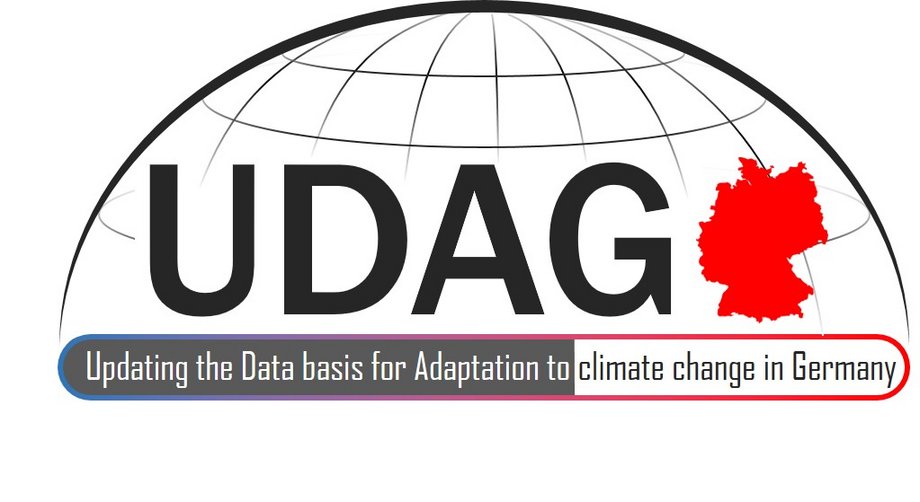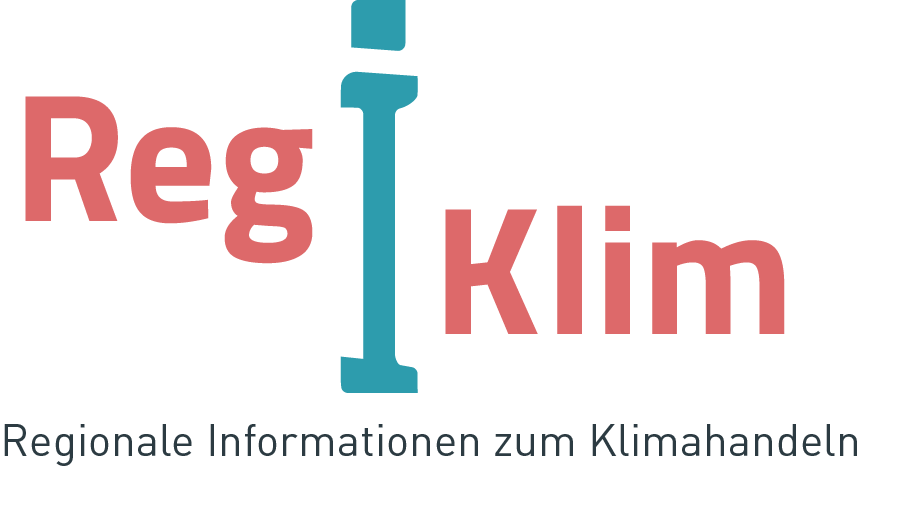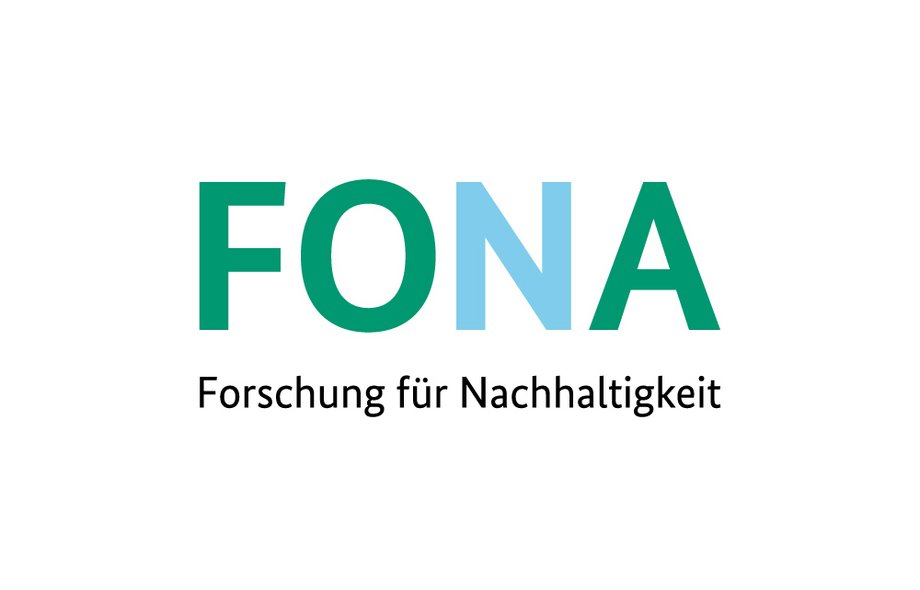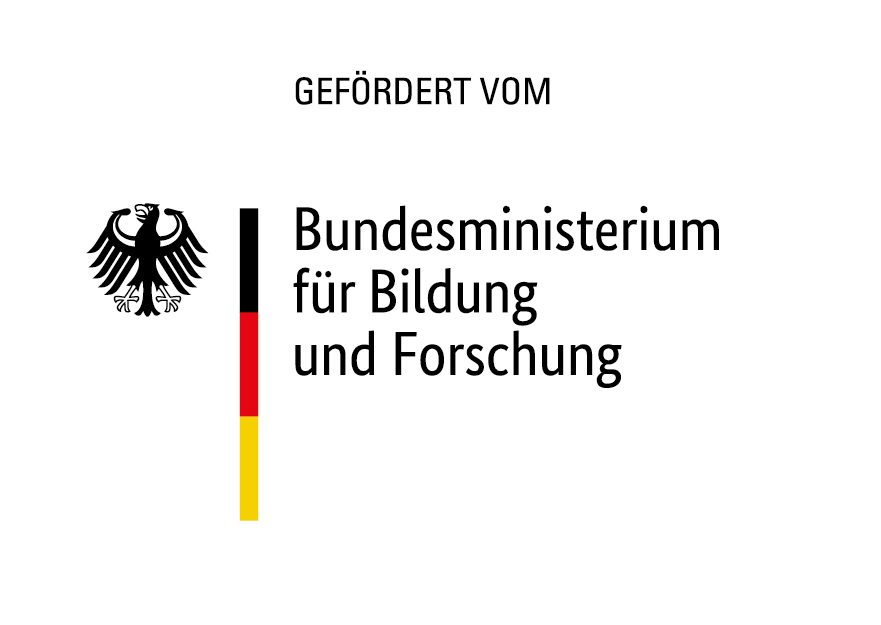


iEnergySolutions
BMBF - 03WIR3019V
iEnergySolutions
PI: Prof. Dr. Katja Trachte
Employees: Rezwan Ahmed
The objective of is the development and implementation of regionally and operationally adapted planning tools for the integration of photovoltaic systems into agricultural production and their ecological, economic and energetic evaluation, which are being developed together with the partners Cebra, BTU, elmak and UP. The BTU's contribution focuses on recording and analyzing the microclimate, in particular the carbon storage and water saving potential of agricultural PV systems by measuring and analyzing feedback in the soil-plant-atmosphere continuum.


UDAG - Updating the data basis for adaptation to climate change in Germany
BMBF - 01LP2326C
UDAG - Updating the database for climate change adaptation in Germany
PI: Prof. Dr. Katja Trachte
Employees: Divyaja Lawand & Muhammed Karadan
The aim of UDAG is to provide up-to-date regional climate projections as a basis for use in the German Adaptation Strategy. In cooperation with five institutions (BTU, DKRZ, DWD, HZ Hereon, KIT), UDAG will provide a quality-tested ensemble of regional climate projections for Europe (12 km) and for Germany (3 km) using the regional climate model ICON-CLM. This will allow small-scale climatological patterns to be recorded, enabling the development of targeted measures on a regional to local scale.




NUKLEUS-QWIKK - Quality analysis of input data and bandwidths of climate change signals for impact modeling and the climate cadastre
BMBF - 01LR2002E1
NUKLEUS2 (Quality analysis of the input data and the bandwidths of the climate change signals for impact modeling and the climate register RegIKlim
PI: Prof. Dr. Katja Trachte
Employees: Christian Beier & Michael Woldt
The second phase of NUKLEUS focuses on the quality and bandwidth analysis of climate change signals. In particular, this involves contributing to the design and implementation of a climate register for Germany, as well as evaluating the underlying climate data for the impact models. This is achieved by analyzing the quality and added value of the model data. The focus is on recording the range of climate change signals, which are examined with the help of climate change indices.

A1 – Atmospheric fluxes and optical trait diversity under climate and land use changes – observations and LSM modelling
PI: Prof. Dr. Katja Trachte, Prof. Dr. Jörg Bendix
The project has the aims to derive (i) optical traits for land surface model (LSM) parametrization and evaluation, and (ii) water and carbon flux measurements for the determination of microclimates and LSM evaluation. Hyperspectral remote sensing will be used to derive PFT and plot optical traits such as spectral leaf and canopy albedo. The data will be taken by field spectrometry and drone imagery for the natural forest and the anthropogenic systems during wet and dry periods along the elevational gradient. On the basis of long-term eddy covariance (ECov) flux measurements (water and carbon fluxes) supported by large eddy simulations (LES) over the natural forest and the anthropogenic systems, exchanges between land surface characteristics and the adjacent atmosphere will be explored.

ClimXtreme – LAFEP – Investigation of an Ensemble of Regional Climate Models with Respect to Land-Atmosphere Feedback and Extreme Precipitation
BMBF - 01LP1902E
A joint research project of the 1BTU Cottbus - Senfentberg
and the 2University of Hohenheim
Subproject B2.1 of the BMBF funded Research Network on Climate Change and Extreme Events climXtreme
PI: Dr. Klaus Keuler1, Prof. Dr. Katja Trachte1, Prof. Volker Wulfmeyer2, Dr. Kirsten Warrach-Sagy2
This project deals with heavy precipitation events (HPE), which can cause small- and large-scale flooding in Central Europe, e.g. in Germany. The focus is the analysis of the physical processes responsible for these HPE. The understanding and advanced representation of HPE in numerical models contribute to an improvement of climate simulations. Hereby, the main objective of the project is to analyse abilities of the ReKliEs-De ensemble. Our research will lead to a deeper understanding of intensive and extreme precipitation.
For the understanding of the future development of HPE due to climate change, further studies on land-atmosphere interactions (L-A) are essential.




NUKLEUS-KONKRET - Convection-permitting climate scenarios for Germany with region-specific evaluations
BMBF - 01LR2002E
NUKLEUS (Usable local climate information for Germany) is a subproject of the BMBF funded Research Network RegIKlim
PI: Dr. Klaus Keuler1, Prof. Dr. Katja Trachte1
The main objective of NUKLEUS is to provide high-resolution climate information for Germany for regional and local climate impact and adaptation research. For this purpose, the prototype of an ensemble of spatially high-resolution climate simulations with three different regional climate models, which is unique in its scope so far, will be created in phase 1. The overall goal is to improve the estimation of the range of future climate changes and their potential impacts.
NUKLEUS-KONKRET focuses on the configuration and implementation of convection-permitting climate simulations for Germany with the regional climate model ICON-CLM, the extraction of user-specific climate data from already existing regional climate simulations, the evaluation of mean annual cycles of selected climate parameters for the model regions participating in RegIKlim, and the analysis of intensive and extreme precipitation episodes in the newly generated climate simulations.
